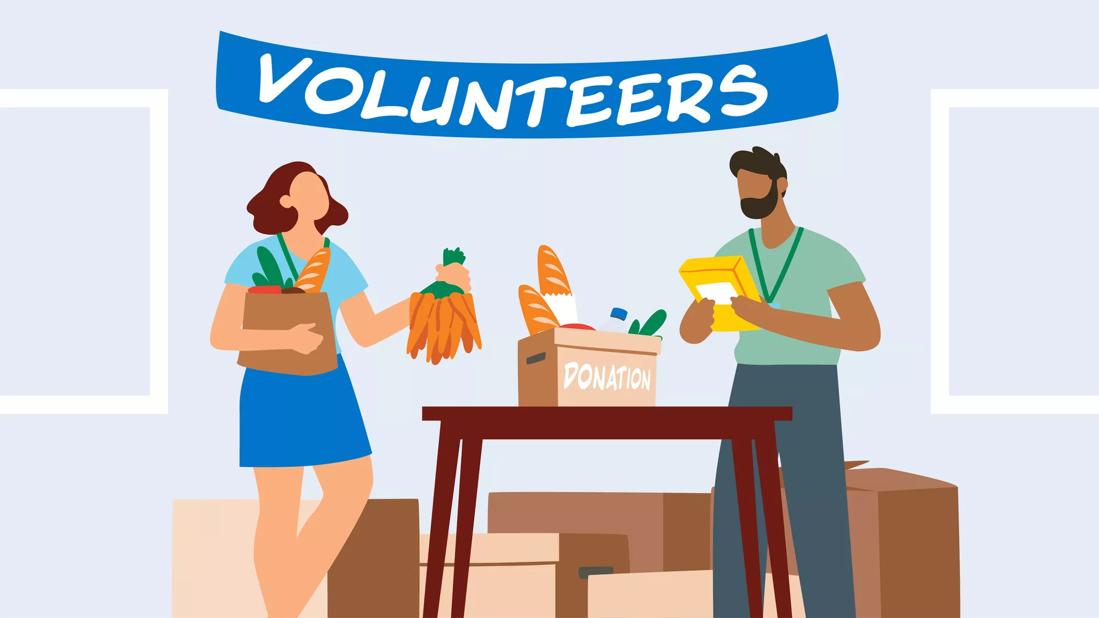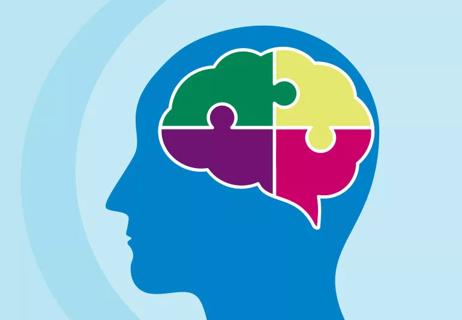Advertisement
Look to activities you enjoy — or try a new hobby — to help foster meeting new people

When you’re a kid, making friends can be as easy as pie. You fall into them the way you fall into anything else. Maybe you find your friend when you sit next to them on the bus or get paired up with them in a group activity in class. Or maybe you come to their defense when they’re getting bullied in school and that one act of heroism is enough to solidify a lifelong friendship you won’t ever forget.
Advertisement
Cleveland Clinic is a non-profit academic medical center. Advertising on our site helps support our mission. We do not endorse non-Cleveland Clinic products or services. Policy
But as we age into adulthood and these friendships either remain or fade with time, finding new friends and maintaining those friendships can be challenging for a lot of folks. And if you’ve fallen out of the habit of meeting new people and you’re quite comfortable in the life you’ve built for yourself, you may need a refresher.
Registered psychotherapist Natacha Duke, MA, RP, explores all the places you can meet and connect with new people and strategies you can use to maintain those adult friendships.
Knowing where to find new friends is a big piece of the puzzle, and this is perhaps the most overwhelming part of the journey when it comes to making new friends. But it’s certainly worth striking out on your own and experimenting with different friend groups and social situations when you consider all the benefits of socializing.
“We know through research that having a strong social support network of friends actually increases your lifespan, and we know it helps to prevent cases of depression as well,” says Duke. “You have many people to support you emotionally and to enrich your life, and in terms of your identity, you’re able to express different parts of your personality with different people.”
If you’re not sure where to start looking, start with what you know and love.
“Find something you already enjoy and start there,” suggests Duke. “If you love reading and you enjoy intellectual stimulation, maybe a book club is the right place to start looking for new friendships. But if you’re athletic and you get a lot of enjoyment out of physical activity, maybe there are other options out there that are more your speed.”
Here are some places you may want to look to establish some new adult connections.
Advertisement
Book clubs provide a routine that you can count on with ample opportunities for new icebreaker conversations, so you don’t have to worry too much about being put on the spot. Whether you meet up at the same location or your book club rotates between hosts, each time you meet up to discuss new reading material is a new opportunity for a refreshing experience to bond with others. And once you establish a connection with someone, you can build on those friendships outside of book club meetings whenever it feels natural to do so.
“The more often we see someone, the more opportunity there is to build a connection and build a friendship, especially if you’re having a shared experience of reading different books together,” says Duke. “Being able to talk to each other about how they connect to the material also provides an opportunity for vulnerability over that shared experience.”
“It’s hard sometimes to meet people at the gym, so if you’re looking to establish relationships in those spaces, you could join a walking group, a running group, a yoga class or a community sports league where you’re meeting some of the same people on a structured schedule,” suggests Duke. “Aside from making friends, there’s also some benefit to being active.”
Regular exercise has been proven to improve your mental, emotional, cognitive and physical health — all things that pay off in the long run and make a huge impact when you’re reconnecting with yourself and establishing new connections with other people.
It’s never too late to learn something new, and it’s never too late to connect with someone over a shared experience. If you enjoy learning or you’ve been interested in picking up a new skill, consider a wide variety of options that include cooking classes, arts and crafts workshops, poetry slams and open mic nights, as well as other creative outlets that challenge and inspire you.
“You might do these activities with other people often and there might even be an opportunity for group work which will allow you to connect with other people,” notes Duke. “You’ll have a lot of things to talk about because you’ll be in the class together and you can share your experiences together.”
For parents, making new friends can feel particularly challenging when all of your time is taken up by your kids’ schedules and extracurricular activities. But Duke says that parents can lean into that and use those extracurriculars as voluntary opportunities to bond with other like-minded parents in social situations.
Advertisement
“You can join different boards at your local school or volunteer in different planning committees and help organize with some school events,” she says. “You get to see these other parents on a regular schedule and start to build these relationships over time, and you can even do this by attending your kids’ events and the things they love doing like soccer, ballet, gymnastics and other sports and club events.”
Apps like Meetup have been designed to foster platonic friendships and social gatherings. Some people have even benefited from using dating apps exclusively for finding new friends, too. By taking an app-based approach, you have a bit more control over how you approach the start of a conversation, and you can filter your searches based on similar interests, regional location and more.
“The difficulty with using apps is that it might sometimes be a one-off situation where you meet up once and it’s not really repeated again,” recognizes Duke. “But if you click with someone, then it could be a great resource.”
Online gaming and gaming groups have taken off on platforms like Discord and Twitch, fostering entire communities where people can connect and socialize with one another while also benefiting from the mental stimulation of playing video games.
“For a lot of people who may be socially anxious or find it more comfortable to engage in conversations online, this is a great way to dip your toe into making adult friends,” shares Duke. “These online relationships can provide some enrichment, but you also want to make sure you’re still branching out and meeting people in person, too, so that you’re not missing out on those in-person connections.”
When we try to focus on enriching our lives, we often look for ways to nurture our minds and our bodies. Two areas you can look to do this are in spiritual centers or local community gardens. If spirituality and faith are important to you, fostering friendships with others who share similar beliefs can be both affirming and validating. Community gardens, on the other hand, provide a similar sense of growth and nourishment as you connect with your neighbors and other members of your community over the shared experience of gardening.
“Look around to see what you’ve already got going on in your life and see what’s easily accessible,” recommends Duke. “Hopefully, when you meet new people in these places, you have things in common and those are great starting points when you’re meeting other adults for the first time.”
Advertisement
“If someone has social anxiety, I often recommend thinking about volunteering because it tends to be very structured and you’re often going to meet all kinds of different people depending on where you choose to volunteer and what roles you pick up,” says Duke.
By volunteering to help out for a cause you believe in and feel passionate about, you also reinforce some of your own beliefs and boost your own mental health in the process.
“You tend to feel as though you’re being generous and you’re helping others, and it’s just a really good thing to do for your mental well-being,” she adds. “Everybody needs their life to be witnessed. You need people that know you and see you and people you can share life with at every level. Volunteering provides another opportunity for those experiences.”
Once you’ve established an initial bond with someone, there needs to be some effort made to make sure that relationship flourishes. You don’t want to force these interactions and you want to make sure they feel organic, but you can certainly offer to take these friendships to the next level by extending them beyond the book club, parenting group or other initial setting where you originally met.
“It’s important to cultivate and foster friendships,” says Duke. “People like to feel like they matter and that they’re important to you and that they are a priority. And that’s beneficial for you as well because when you see people on a more regular basis, you’re more likely to share what’s going on in your life and seek support through other people.”
Duke offers these ideas:
Advertisement
Learn more about our editorial process.
Advertisement

Our collective misremembering of events comes from a surplus of false memories

This alternative brain-body therapy focuses on unlocking pent-up feelings, memories and tension that may be stuck in your brain and body

While walking, be mindful of your body, your mind, your place in the world and all five of your senses as you pave a path forward, one step at a time

Local LGBT centers, online directories, visual cues and gender-affirming care or non-discrimination policies can all be helpful resources and cues

The cycle of abuse is a simple theory for understanding relationship violence — but the model might not fit everyone’s situation

In a world where instant gratification is the norm, you can train yourself to be more comfortable waiting patiently

Sleeping with separate blankets can help you get the ZZZs you need — without fighting for covers all night

This romantic orientation involves little to no romantic attraction to others and exists on a spectrum

Focus on your body’s metabolic set point by eating healthy foods, making exercise a part of your routine and reducing stress

PFAS chemicals may make life easier — but they aren’t always so easy on the human body

While there’s little risk in trying this hair care treatment, there isn’t much science to back up the claims